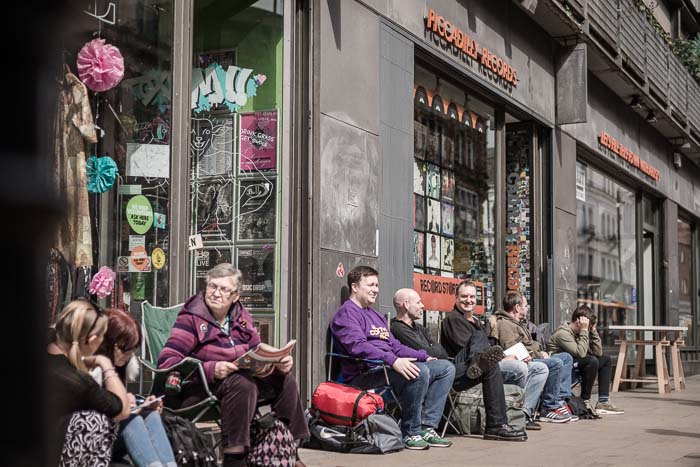What happened to the iconic Boddies brewery?
- Written by Thom Bamford
- Last updated 2 years ago
- City of Manchester, Cornerstone, History
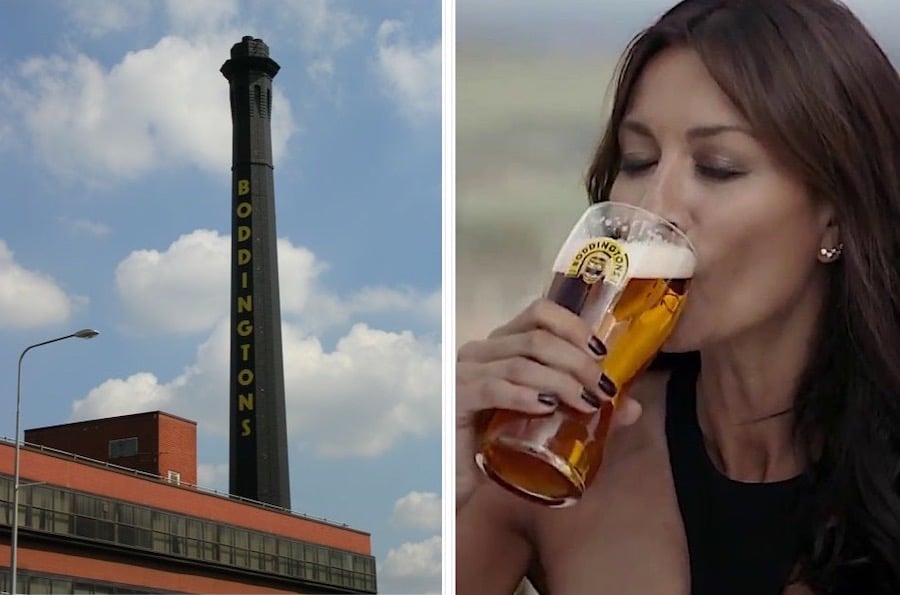
For 227 years, the iconic Boddingtons beer was brewed at its historic factory near Strangeways.
However, the brand has now moved out from the city, leaving us with just memories.
The history of Boddingtons Brewery

In 1778, grain merchants Thomas Caister and Thomas Fray laid the foundation of Boddingtons Brewery, quickly earning a reputation for their exceptional ales.
Strategically located just outside Manchester, the Thomas twins built the brewery to circumvent taxes imposed by Manchester Grammar School, which held a monopoly on grain grinding within the town.
The brewery flourished, capitalising on the burgeoning demand for locally brewed beer fuelled by the Industrial Revolution and the region’s growing population.
The rise of Henry Boddington
In 1832, Henry Boddington joined the brewery.
His entrepreneurial acumen and dedication led to remarkable success, and by 1848, at the age of 34, he became a senior partner.
Within five years, Henry Boddington became the sole proprietor of the company, transforming Boddingtons into a family business with his sons joining the management.
The 1870s and 1880s witnessed the expansion of Boddingtons, acquiring several breweries and extending the Strangeways works.
By 1877, Boddingtons had become the largest brewery in Manchester, brewing over 100,000 barrels annually and owning 71 public houses.
Why Boddingtons Bitter was called ‘The Cream of Manchester’
Boddingtons flagship beer, Boddingtons Bitter, achieved nationwide recognition and became the epitome of the brand.
This smooth, creamy, and slightly hoppy pale ale boasted a distinctive golden colour and a luscious creamy head when poured.
The Manchester brewery, nestled on Strangeways Lane, emerged as a symbol of Boddingtons identity, characterised by its striking red brick buildings and a towering chimney that proudly stood as a city landmark.
Innovation and progress
Henry Boddington fostered a spirit of innovation, exemplified by the brewery’s groundbreaking achievements.
In 1877, Boddingtons made headlines as the first business in Manchester to install a telephone link between two of its sites.
In 1887, Boddingtons Breweries Ltd became a publicly registered company, weathering trade fluctuations caused by the First World War and the Great Depression to solidify its position as one of the premier breweries in North West England.
Henry died a very rich man in 1886, with the company being valued at £150,000 (around £19.5m today). His son William Slater took over, made the company public, and doubled its value and so Boddingtons Breweries Ltd. was born.
Manchester’s 19th century beer poisonings
Towards the end of the 19th century, Boddingtons had established ownership of more than 200 public houses, solidifying its position as the twelfth largest tied estate in the United Kingdom. The company was thriving during this time.
However, a significant setback occurred in the year 1900. A tragic incident unfolded as a result of arsenic contamination in the beer produced by numerous breweries in the city. This unfortunate event led to the poisoning of over 6,000 individuals, with the death toll surpassing 70. A subsequent inquiry into this widespread poisoning shed light on a disturbing revelation—arsenic had unknowingly been present in beer for several decades, causing the inadvertent poisoning of thousands.
In the case of Boddingtons, numerous barrels of their beer was tainted due to the inclusion of sugar during the fermentation process. In an intensely competitive beer market, breweries sometimes resorted to substituting high-quality barley malt with inferior alternatives, supplemented by sugar. This sugar was produced by subjecting starch to acid-induced heating, resulting in the formation of glucose.
Challenges and transformation
The brewery faced adversity during the Second World War when it was heavily damaged in a massive air raid on December 22, 1940.
Brewing operations were halted for seven months as extensive repairs took place.
The post-war era provided an opportunity for modernisation, leading to significant expansion and the installation of state-of-the-art brewing equipment.
Growth in the 1980s
In the 1980s, Boddingtons Bitter experienced remarkable growth, extending its reach beyond Manchester and captivating beer enthusiasts with its affordable and unique brew.
By 1986, the brand boasted 580 tied pubs and an annual production of over 500,000 barrels, despite operating at only 50% capacity.
In 1989, Boddingtons was acquired by Whitbread for a staggering £50.7 million. Under Whitbread’s ownership, Boddingtons transformed into a renowned global brand, achieving widespread recognition and popularity.
Iconic adverts: ‘Do you want a flake in that, love?’
Boddingtons were way ahead of their time with its marketing. Recruiting the wonderful Melanie Sykes, The Mossley-born model first found fame after her starring role in a Boddies advert back in the ‘90s, when it was then known as the “Cream of Manchester”.
The iconic advert shows an athlete chasing an ice cream van, where Melanie pops her head out of an ice cream van with a pint of bitter instead of a cone to an athlete to say: “Do you want a flake in that love?”
In 2017, Melanie also resumed her most famous role as a Boddingtons girl in a hilarious advert for the beer company.
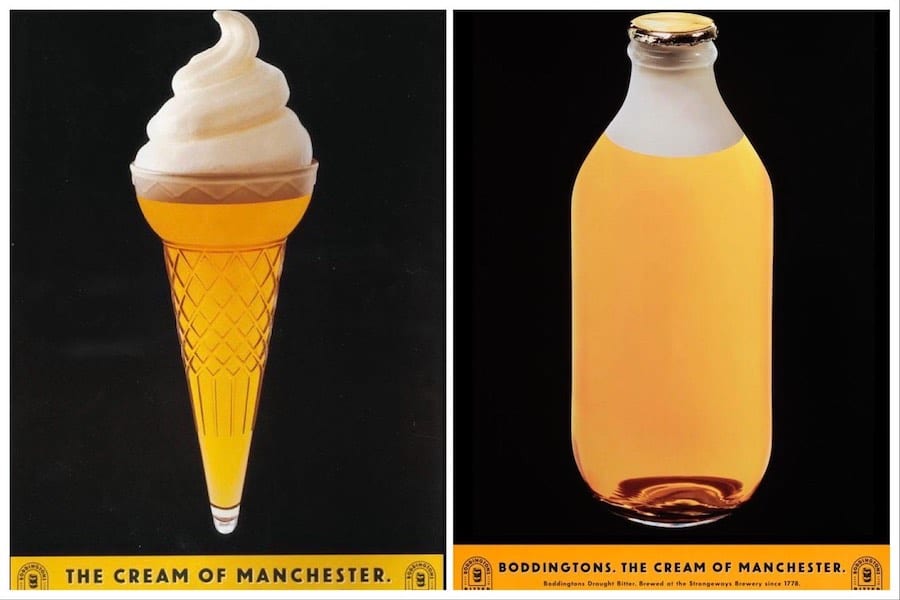
It became such a phenomenon worldwide, that it’s even mentioned by Joey in an episode of the Iconic 90s sitcom Friends.
If you’re curious, the episode is called: The One With All The Kissing.
In 2019, Stuart Jeffries, for The Guardian wrote that ‘There is a possibility that ad agency Bartle Bogle Hegarty’s Cream of Manchester ad campaign, which ran from 1991 until 1999, is responsible for the transformation of that city’.
Another of the iconic adverts was the River Irwell mocked up to look like Venice.
The ad featured two gondolas drifting towards each other, creating an atmosphere of erotic anticipation, with O Sole Mio pumping out in the background.
The young man in the ad is holding what appears to be ice cream, but the woman leans over and steals his pint of Boddingtons beer.
Anna Chancellor, who played the beer thief, went on to star in “Four Weddings and a Funeral” and later married the B camera operator from the ad.
The Cream of Manchester ad campaign by Bartle Bogle Hegarty is widely credited with transforming the city’s image.
Ownership changes and the end of an era
Over time, Boddingtons experienced various ownership changes and corporate restructuring. In 1989, the brewery was acquired by Whitbread, a prominent brewing and hospitality company, resulting in continued growth for Boddingtons Bitter, which became one of the UK’s top-selling beers.
However, in 2000, InterBrew UK (now InBev) purchased Whitbread’s brewing section, and in 2002, plans to close the Strangeways Brewery was announced.
The brewery shut down in February 2005 despite many protests, with workers clocking off for the final time in its 227-year history, and the site was sold to Ask Developments and Realty Estates for £12m
The site got one last hoorah in 2006, when it was used for the first-ever warehouse project before it was razed to the ground in 2007 and replaced by what must be said, a rather grotty car park, which it currently is today.
Only the chimney remained, as it maintained listed status. Despite this, it only lasted until 2010 before it was knocked down too.
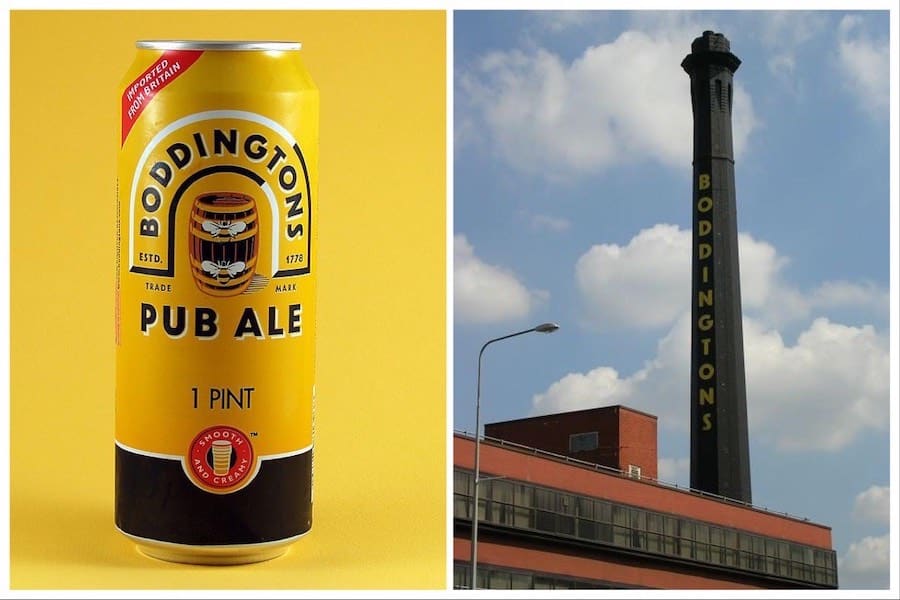
The redevelopment of Boddingtons Brewery
Production of the beer was relocated to InBev’s other brewing facilities in Salmesbury, near Preston, and Magor, South Wales.
Today, the site of the former factory is set to be repurposed for residential and commercial spaces.

The iconic Boddingtons brewery in Strangeways has seen a complete transformation over the last year, as Manchester College’s brand spanking new £93m city centre campus opened in September 2022.
But they’re not done yet.
This year, more than 450 homes, 60% of which will be affordable housing are set to be built on the former car park.
Latimer, who are overseeing the project, are still searching for a contractor to take on the job, after plans were approved last March. It is believed the contract is worth £75m.
They are expecting construction to take a massive 35 months, a huge part of the Strangeways redevelopment programme which could even see the Prison close after suggestions were made it was not fit for purpose.
What happened to Mel Sykes?
Melanie Sykes recently shared her decision to permanently step away from television after a pivotal experience during her time on Celebrity MasterChef.
The 52-year-old TV personality has chosen to leave behind mainstream television and embark on a new endeavour instead.
Reflecting on her journey, Sykes recalled an influential moment involving Gregg, where he expressed his belief that her participation in the BBC reality show would greatly benefit her career, stating that it “would do a lot for you.”
Ironically, these well-intentioned words from Gregg took Sykes on an unexpected path, causing her to reassess her entire professional trajectory and ultimately make a resolute vow to never return to the small screen. In her book, she revealed that her appearance on the show compelled her to “permanently conclude her television career.”
During her Celebrity Masterchef stint and after Gregg’s comment, she realised that she was ‘done’ for good.
“I will no longer be tap-dancing for corporations who couldn’t give two hoots about my wellbeing,” she told The Guardian.
“Mainstream TV just doesn’t interest me.”
Fair enough, Mel!
- This article was last updated 2 years ago.
- It was first published on 9 June 2023 and is subject to be updated from time to time. Please refresh or return to see the latest version.
Did we miss something? Let us know: press@ilovemanchester.com
Want to be the first to receive all the latest news stories, what’s on and events from the heart of Manchester? Sign up here.
Manchester is a successful city, but many people suffer. I Love Manchester helps raise awareness and funds to help improve the lives and prospects of people across Greater Manchester – and we can’t do it without your help. So please support us with what you can so we can continue to spread the love. Thank you in advance!
An email you’ll love. Subscribe to our newsletter to get the latest news stories delivered direct to your inbox.
Got a story worth sharing?
What’s the story? We are all ears when it comes to positive news and inspiring stories. You can send story ideas to press@ilovemanchester.com
While we can’t guarantee to publish everything, we will always consider any enquiry or idea that promotes:
- Independent new openings
- Human interest
- Not-for-profit organisations
- Community Interest Companies (CiCs) and projects
- Charities and charitable initiatives
- Affordability and offers saving people over 20%
For anything else, don’t hesitate to get in touch with us about advertorials (from £350+VAT) and advertising opportunities: advertise@ilovemanchester.com
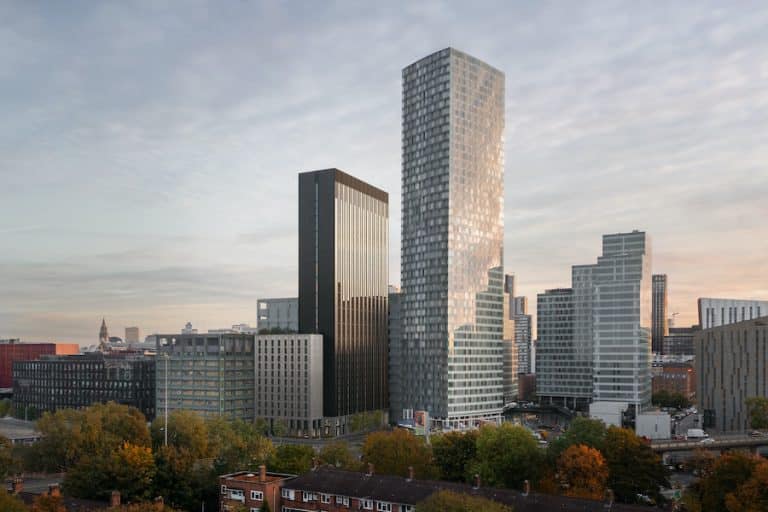

The Manc aerobics queen who trained the Corrie cast is helping raise charity cash
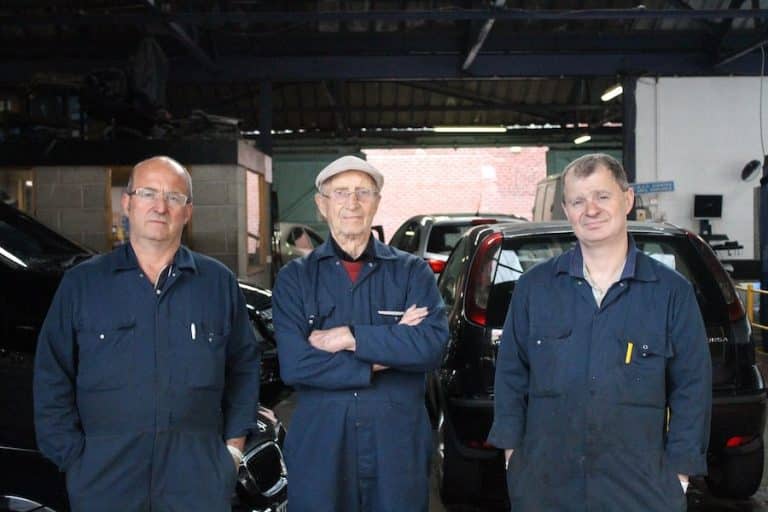
Ancoats to get even cooler as independent market set for MOT garage site

“Manchester is not Britain’s second city, it’s the first” – Jeremy Clarkson
